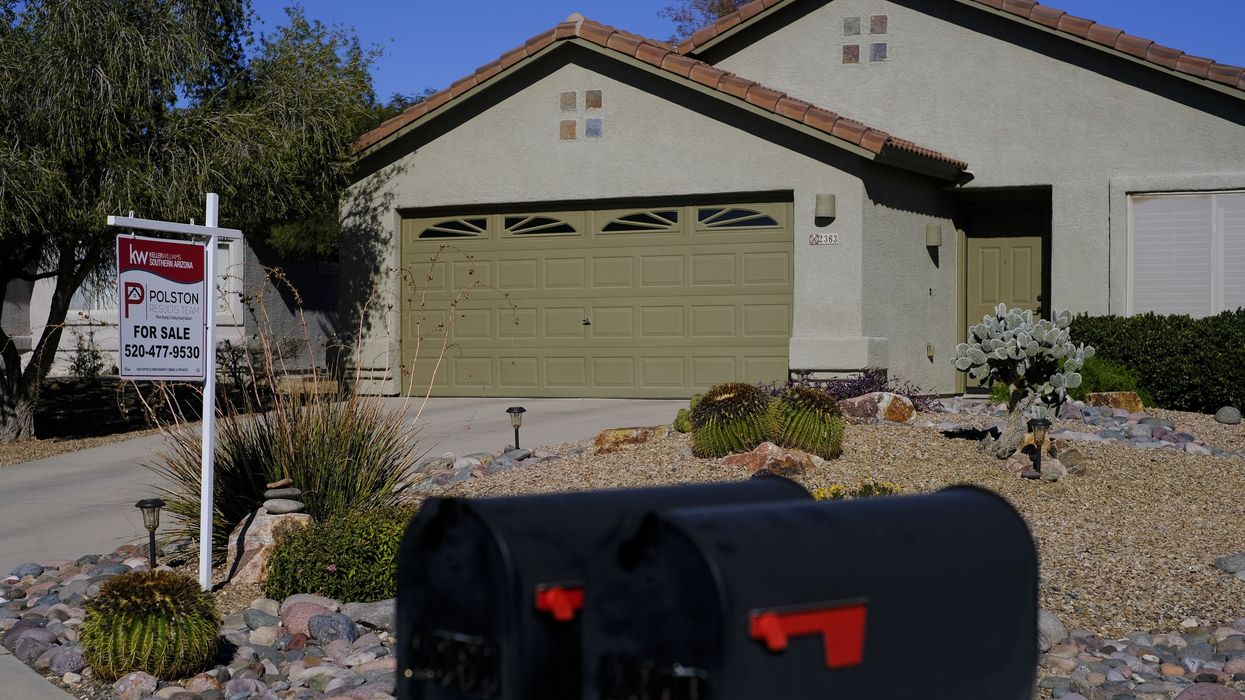Billionaire landlords have amassed $240.9 billion in wealth, $24.4 billion of it during the pandemic, according to a new report released less than two weeks before a nationwide eviction moratorium is set to expire. Many have continued evictions despite the restriction, and are poised to tighten their grip on the housing sector, in much the same way they did after the 2008 financial crisis.
The report, "Cashing in on Our Homes: Billionaire Landlords Profit as Millions Face Eviction," was co-authored by Bargaining for the Common Good, the Institute for Policy Studies and Americans for Financial Reform Education Fund. It examines 20 corporate landlords, including many owned by real estate tycoons that have wealth totaling $194 billion, and have seen their wealth increase $21.2 billion since mid-March 2020. These 20 corporate landlords control the fate of 2 million families renting houses, apartments, or manufactured home lots. These nearly 2 million units of housing represent about 4% of rental housing units in the United States, more than one in 25 nationwide.
Many of these companies also profited off the 2008 financial crisis by buying up real estate at rock-bottom prices after the mortgage meltdown. Today, during the pandemic-induced economic crisis, these 20 landlords have amassed at least $245 billion in "cash on hand"- loans, cash and other funds from investors, banks and financial firms - they can use to capitalize on the current economic crisis and increase their stranglehold on residential real estate by expanding their portfolio of rental properties during the coming months and years.
"This report shows what our communities have seen during crisis after crisis in this country: wealthy, white billionaires and multi-millionaires profiting from our pain," said report co-author and Bargaining for the Common Good Research Director Sara Myklebust. "Over 530,000 people, disproportionately Black and Brown, have lost their lives - one in three Americans knows someone who has passed away. Meanwhile, these men and their companies are pushing for more rent and evicting families, literally putting more lives at risk. These guys, as individuals, could afford to forgive rent for millions of Americans - what they're doing is criminal," Myklebust said.
"The billionaire class has seen their wealth increase throughout the pandemic," said Omar Ocampo, report co-author and researcher at the Institute for Policy Studies. "When billionaires and private equity firms treat housing as a commodity, the housing security of tenants is put at risk. We need to defend our communities by prioritizing affordability and ensuring that housing fulfills a social need and does not become another vehicle for wealth extraction."
The report identified 61 billionaire landlords whose wealth increase during the pandemic of $24.4 billion is enough to pay over 40% of the $57.3 billion in overdue rent by all U.S. renters (ten million families) through January 2021. While these companies are almost exclusively led and owned by white men, renter households of color are twice as likely to be at risk of eviction. These billionaire white male landlords' combined wealth of $240.9 billion is nearly four times the overdue rent for those ten million families.
"After the 2008 financial crisis, private equity landlords made a mint scooping up residential real estate and profited by jacking up rents, skimping on upkeep, and aggressively pursuing evictions," said Linda Jun, senior policy counsel at Americans for Financial Reform Education Fund, which also co-authored the report. "This behavior is a taste of what is likely to happen if corporate landlords strengthen their grip on renters during the COVID-19 crisis. This track record, including running afoul of fair housing and tenant protection laws, underscores the need for strong protections for renters and reform of the predatory private equity industry."
The report's list of 20 corporate landlords include companies controlled by some of America's richest people as well as major private equity firms that own hundreds of thousands of rental units in every region of the country.
The top 20 billionaire landlords include these well-known billionaires:
- Stephen Schwarzman
- Donald Bren
- Leon Black
- Josh Harris
- Marc Rowan
- Stephen Ross
- Barry Sternlicht
- Sam Zell
- George Marcus
- J. Bruce Flatt
- Stephen Feinberg
- Mack Pogue
There are 73 million adults who are renters in the U.S. - almost 30% of the country's adult population. One out of every five of those renters are in arrears as of early February 2021. Meanwhile, one in four renting households with children are late on rent, making them twice as likely to be at risk of eviction. Every region and state across the country faces similar troubles, with over 10% of renters in every state behind on rent.
Before the pandemic, Black and Brown people and families were more likely to be renters, more likely to work in low wage jobs and less likely to have accumulated savings and wealth. Using data from the Harvard Joint Center on Housing Studies, the report says that during the pandemic, Latinx and Black renters have been the most likely to lose employment income, fall behind on rent and are now at substantially higher risk of eviction.
On the other hand, billionaire landlords - many of whom have received federal government assistance in the form of low-cost financing to buy or build developments as well as subsidized rental assistance - are receiving financial support from the coronavirus relief package, sometimes while continuing to file eviction notices against their tenants. According to the report, the twenty companies profiled have pursued at least 3,152 evictions in just 29 counties in eight states where the data is easily accessible - even during the pandemic moratorium. The number nationwide is likely to be many times higher. The report includes data showing that nearly one in 10 Black and Latinx renter households face imminent eviction, twice as high as white renter families.
The situation is on the verge of getting much worse, according to the report. "Leaders and owners of corporate landlords are openly delighting in plans to profit once millions of Americans are evicted, seeing housing as an "opportunity sector" where they can extract more wealth for investors and themselves. They are poised to profit from the pandemic economic downturn much as they capitalized on the 2008 financial crisis and mortgage meltdown, with plans to buy up more real estate and increase their stranglehold over the residential housing market," the report says.
The report includes proposed solutions for corporate landlords - and their billionaire owners and investors, as well as policymakers. One recommendation, an innovative proposal to create an excise tax on large corporate landlords, is modeled after the Homes for Families and Corporate Monopoly Transparency Excise Tax legislation currently under consideration in California Legislature. Companies "have the responsibility - and more than enough resources - to protect our communities during this pandemic. They need to put our health and safety before their greed," the report says. Policymakers, "must start to rebuild housing systems in this country using innovative strategies that center families of color and make clear that housing is the human right that this pandemic has made clear it should be," it continued.




